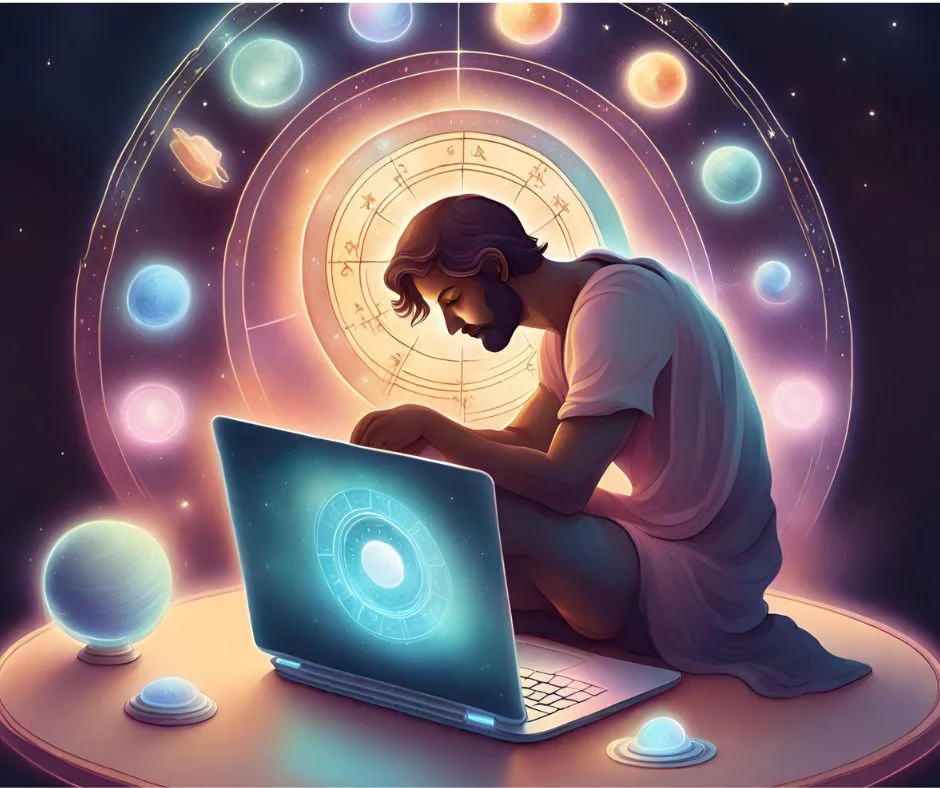Origins of Astrology and Its Modern Interpretation
Astrology has captivated and intrigued humanity for centuries, offering insights into our personalities, relationships, and life's journey. This ancient practice has evolved over time, shaped by the beliefs and cultural norms of various societies. In this comprehensive guide, we will explore the history and evolution of astrology, tracing its origins and delving into its modern interpretation. We will uncover how astrology continues to influence our lives today.
The Early Beginnings
Babylonian Astrology
One of the earliest recorded forms of astrology emerged in ancient Babylonia around the 2nd millennium BCE. Babylonian astrologers observed the night sky, meticulously studying the movements and positions of celestial objects, such as stars and planets. They believed that these celestial events held significance and could provide insights into human affairs and the natural world. Babylonian astrology laid the groundwork for the zodiac and the division of the sky into 12 sections, each associated with a specific constellation.
"The Babylonians were pioneers in mapping the stars and interpreting their influence on human life." – Unknown
Egyptian Astrology
In ancient Egypt, astrology was closely tied to the agricultural calendar. The movements of the stars, particularly the rising of the star Sirius, were used to predict the annual flooding of the Nile, which was essential for their agriculture. Egyptian astrology also played a significant role in their religious beliefs, with various celestial bodies associated with deities and their myths.
The Greco-Roman Influence
The Greeks and Romans were pivotal in the spread and development of astrology. The works of scholars like Claudius Ptolemy in the 2nd century CE helped systematize and organize astrological knowledge. This period saw the introduction of horoscopes, a key element in modern astrology.
Hellenistic Astrology
During the Hellenistic period, astrology reached new heights of popularity. Greek scholars blended Babylonian and Egyptian astrology with their own philosophical ideas. They introduced concepts such as the Ascendant (the zodiac sign rising on the eastern horizon at the time of birth) and the houses (divisions of the birth chart representing different areas of life). Hellenistic astrology focused on the individual's birth chart as a tool for understanding personality and predicting future events.
Roman Astrology
The Romans adopted and adapted Greek astrology, incorporating it into their own culture and society. Astrology became intertwined with Roman politics, with emperors and politicians consulting astrologers for guidance. Notable Roman astrologers, such as Firmicus Maternus, further developed astrological techniques and interpretations.

Astrology in the Middle Ages
Islamic Astrology
During the medieval period, astrology flourished in the Islamic world. Islamic scholars preserved and expanded upon the astrological knowledge of the ancient Greeks and Romans. They made significant advancements in the fields of astronomy and astrology, developing complex systems and methods for astrological calculations. Islamic astrology influenced the development of astrology in Europe during the Middle Ages.
Medieval European Astrology
In medieval Europe, astrology was deeply intertwined with religious and philosophical beliefs. Astrologers were prominent figures in society, advising rulers and nobles on matters of state and personal affairs. Astrological texts were translated from Arabic into Latin, making astrology accessible to a wider audience. During this period, astrology focused on predicting events and interpreting omens based on celestial alignments.
The Modern Era
The Renaissance and Astrology
The Renaissance period saw a resurgence of interest in astrology, along with a broader exploration of science, art, and philosophy. Renaissance scholars sought to reconcile astrology with the emerging scientific discoveries of the time. Prominent figures like Johannes Kepler, a renowned astronomer, were both astronomers and astrologers. Kepler believed that astrology could be explained through the laws of physics and mathematics.
The Rise of Modern Astrology
In the 19th and 20th centuries, astrology experienced a shift toward a more psychological and introspective approach. Influenced by the works of Carl Jung and other psychologists, astrologers began to interpret birth charts as reflections of an individual's inner world and psychological makeup.
"Modern astrology seeks to provide individuals with insights into their own personalities and life patterns." - Unknown
Astrology in the Digital Age
Astrology on the Internet
With the advent of the internet, astrology has become more accessible than ever before. Online platforms offer birth chart calculations, horoscope readings, and personalized astrological insights. Astrologers share their knowledge and interpretations through blogs and social media, reaching a global audience.
The Modern Interpretation
Astrology has evolved to encompass various branches and approaches. Traditional astrology, with its focus on ancient techniques and interpretations, coexists with modern psychological astrology, which emphasizes personal growth and self-awareness. Astrologers also integrate other divination practices, such as tarot reading and palmistry, to provide a holistic understanding of an individual's life path.
Conclusion
The history and evolution of astrology reflect the human fascination with the cosmos and our desire to understand ourselves and our place in the universe. From its ancient roots in Babylon and Egypt to its flourishing in Hellenistic Greece and medieval Europe, astrology has continuously adapted and evolved. In the modern era, astrology has found its place in the digital age, providing individuals with valuable insights and guidance. As we navigate the complexities of life, astrology continues to offer a lens through which we can explore our personalities, relationships, and life's journey.
For further exploration of astrology and related topics, check out these resources:
- Astrology Blog: Your Cosmic Guide
- Zodiac Sign Interpretations
- Unlock the Secrets of Your Birth Chart
- Why AstroFree.co
- Visit AstroFree.co
- Embrace the wisdom of palm reading in Indian astrology and let the secrets of your hands guide you on your unique life journey.
Remember, the future is not set in stone, but astrology offers glimpses into the possibilities that lie ahead.


